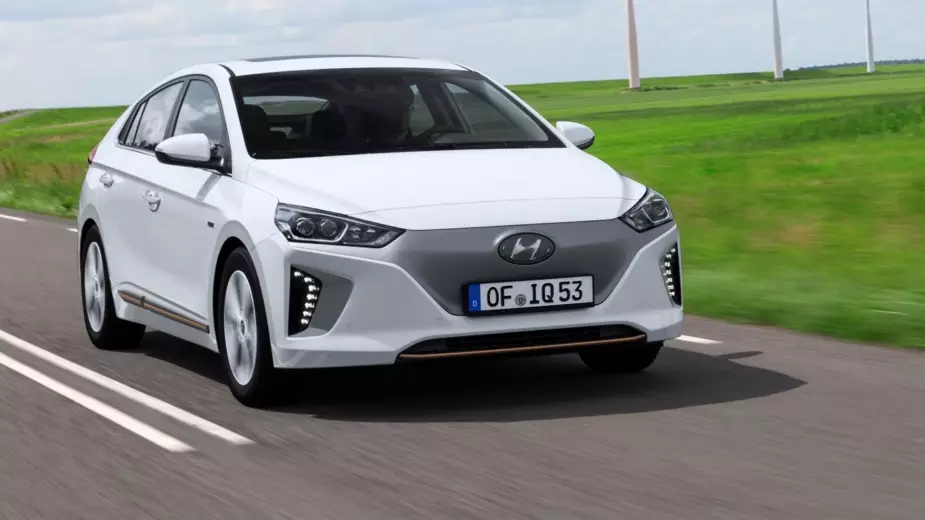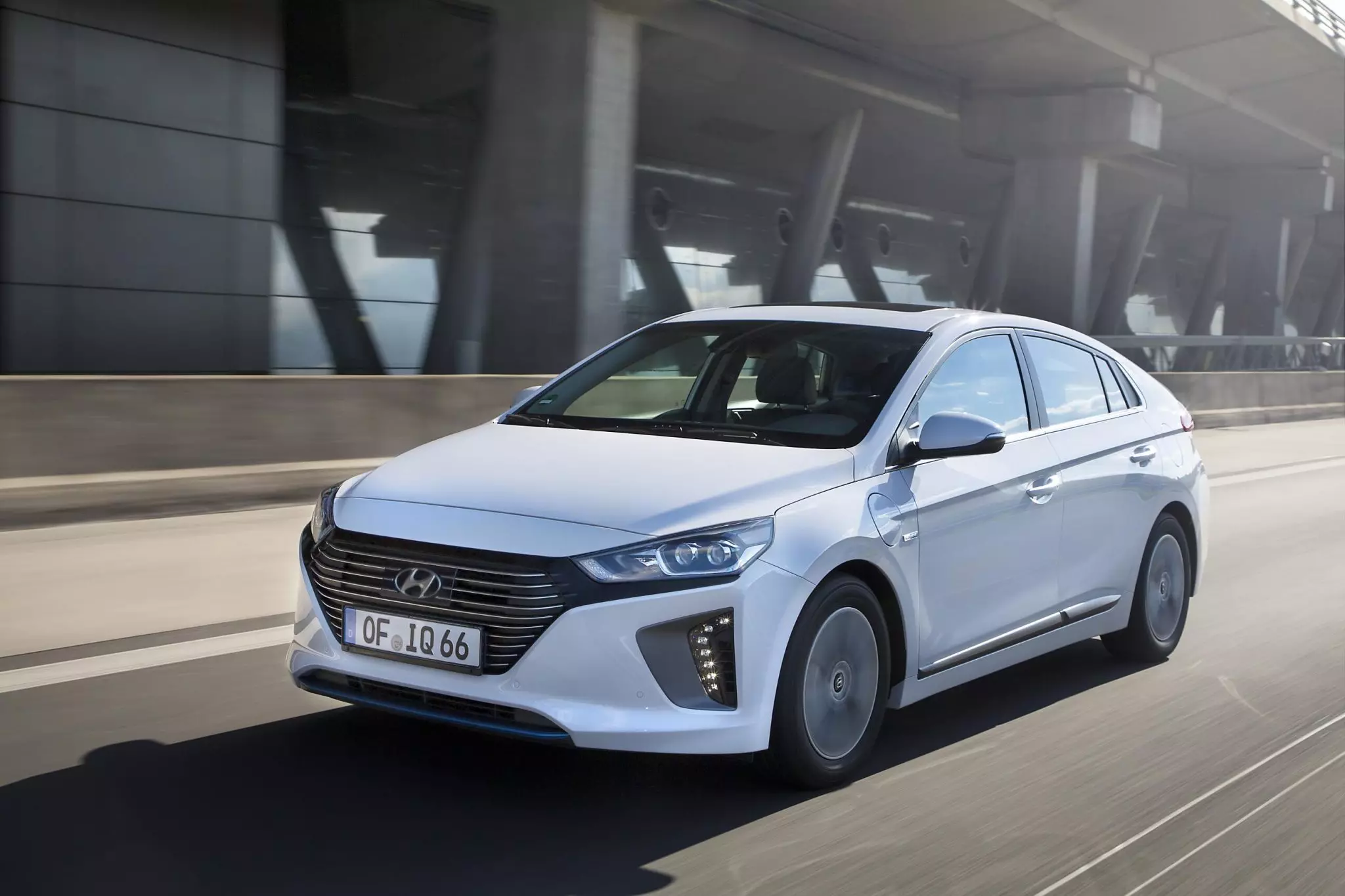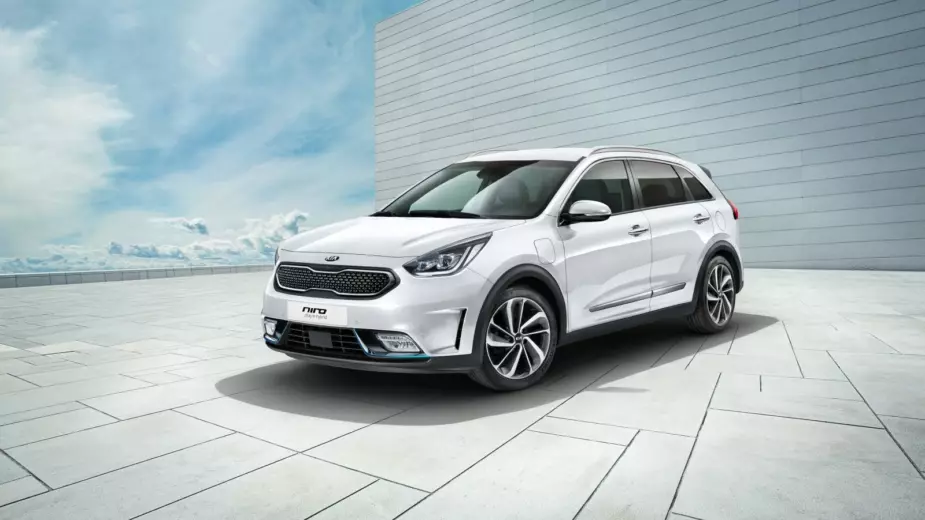This year, the Ecological of the Year 2018 category was taken by storm by proposals from Asia. From South Korea comes not one, not two… but three models! Hyundai Ioniq Electric, Hyundai Ioniq Plug-in Hybrid and Kia Niro PHEV.
After the road tests are finished, here are our thoughts on each model in competition, in alphabetical order, in the Ecological category of the Year 2018 of the Essilor Car of the Year award in Crystal Steering Wheel.
Hyundai Ioniq Electric – 38 500 euros

It is Hyundai's first 100% electric model. The first of a family of ecological models that by 2020 will have more than twenty members.
In addition to this 100% electric version, the Hyundai Ioniq range has two more versions: a hybrid and a hybrid Plug-in. This version stands out from the rest by dispensing with the 1.6 liter atmospheric engine and relying solely on a 120 hp electric motor, powered by batteries with a capacity of 28 kWh. Which translates into an announced range of 250 km. In our test, this value was around 200 km of autonomy — still, a value more than enough for most routes.
In terms of the interior, the onboard environment stands out, characterized by silence and comfort. Heated steering wheel, heated and ventilated seats, electrical adjustments, infotainment system with GPS, induction cell phone charging and comfort… lots of comfort. Accelerations are vigorous and we never lack power, even on the open road.
In dynamic terms, the Ioniq Electric has no pretensions of becoming a sports car, but still offers sane handling on rough roads and steering with correct assistance. Low friction tires are always the first to show discomfort with faster paces.
For this «king of silence» Hyundai asks for 39,500 euros, offering a 5-year warranty with unlimited kilometers for mechanics and an 8-year warranty for the batteries.
Hyundai Ioniq Plug-in – 38 500 euros

Everything I have written about the ride comfort and equipping of the Hyundai Ioniq Electric is valid for this Plug-in version.
The big difference lies in the mechanics. In this model we find a 1.6 atmospheric engine with Atkinson cycle associated with an electric motor, for a combined final power of 141 HP and 265 Nm. Coupled to this mechanics we find a 6-speed double clutch gearbox.
All in all, Hyundai claims an average consumption of 1.1 l/100 km and CO2 emissions of 26 g/km, and a range in 100% electric mode of 60 km. Two values that we cannot reach but that are not far from reality. 2.3 liters/100 km in a mixed circuit and 35 km of electric autonomy.
In dynamic terms, the differences to the Ioniq Electric are practically imperceptible, despite this resorting to a multi-link rear suspension. The price is exactly the same as the 100% electric version: 38 500 euros.
Kia Niro PHEV – 39,750 euros

Starting from the same basis as the Hyundai Ioniq, Kia developed the Kia Niro, an SUV with an MPV air (or vice versa…), with a very interesting price/quality ratio.
Like the Ioniq, all equipment is standard on the Niro PHEV (with the exception of metallic paint), including elements such as adaptive cruise control, heated seats, infotainment system, induction smartphone charging, angle warning dead, emergency braking. Finally, the latest technologies at the driver's service. The quality of construction and the space offered are also convincing.
On the road, the Niro PHEV chassis reveals the good path mapped out by Korean engineers. The weight of the batteries and the rest makes you feel but doesn't compromise. The 1.6 liter engine with Atkinson cycle associated with an electric motor, produces a combined power of 141 hp, enough for the Niro PHEV to reach 0-100 km/h in 10.8 seconds and reach 172 km/h of speed maximum.
But more than the numbers it manages, it's the way in which this power arrives that surprises: there is always a reserve of power available. As for prices, the Niro PHEV is offered on the national market for 39,750 euros.
Final considerations
These are three very equivalent proposals — if only because they share the same platform, and therefore some defects and virtues. In terms of equipment they make a very similar game, offering a lot of equipment for a fair price.
The Hyundai Ioniq Electric plays its card through the 100% electric motor, the Hyundai Ioniq Electric through its autonomy and costs of use, and finally the Kia Niro, which makes use of its bodywork with an SUV air, among other arguments which are transversal to all models. The winner will be announced on March 1st.
